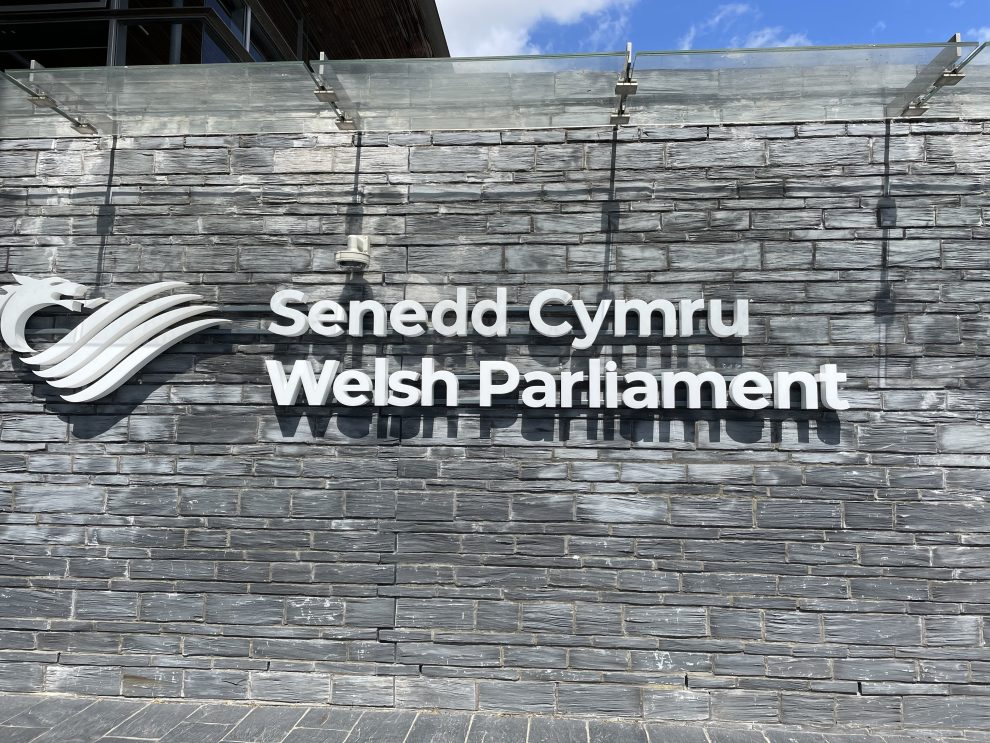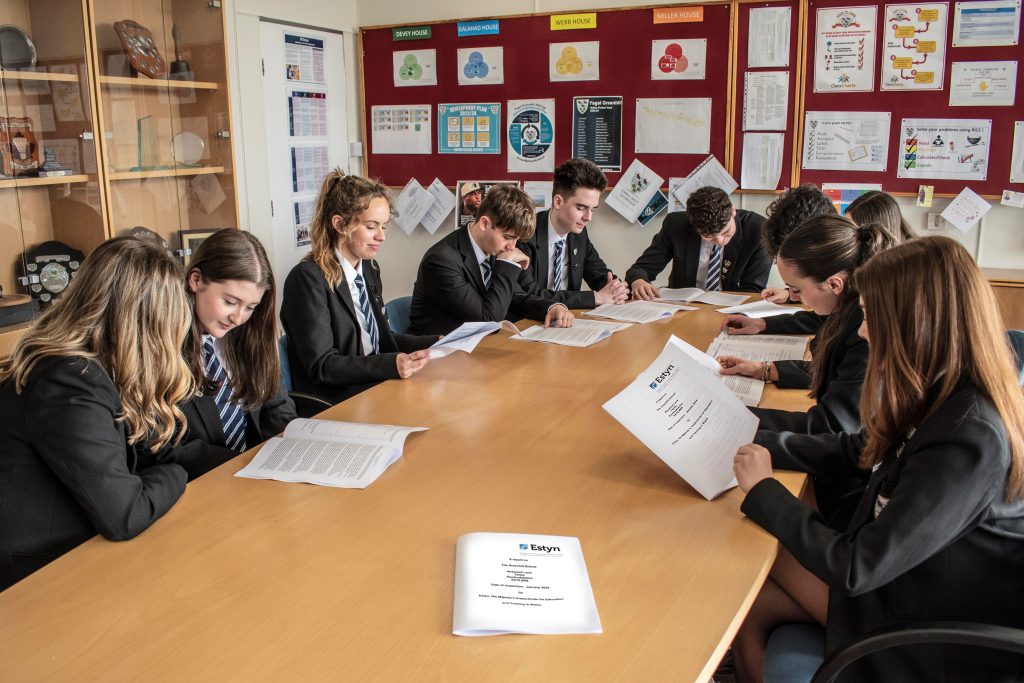Education
Teachers demand pay ‘justice’

TEACHER unions representing the majority of education staff in England and Wales have submitted a joint statement calling for a significant pay increase for teachers and school leaders, and setting out their views on the most pressing issues facing the School Teachers’ Review Body (STRB).
ASCL, NAHT, NEU, UCAC and Voice believe that the STRB needs to set a benchmark for teacher and school leaders’ pay which will make teaching competitive with other graduate professions and aid both recruitment and retention.
A spokesperson said: “The evidence from our organisations of a growing crisis in recruiting and retaining teachers and school leaders means that the STRB must take this opportunity to fully exercise its functions as the independent pay review body for the profession. We believe that this must lead the STRB to recommend a significant increase in pay for all teachers and school leaders, irrespective of their career stage, setting or geographical location.
”We believe it is a matter of ‘justice and fairness’ that all teachers and school leaders should receive an annual cost of living increase to prevent them from being worse off year-on-year. ”The current policy of differentiated pay awards is not working and is demoralising the profession.
”We are calling for a significant pay increase for all teachers and school leaders to begin to address the decline in teachers’ real pay over the last seven years.
”It is also vital that any pay increases arising from the recommendations of the STRB are fully funded by the government. School budgets are at breaking point. Without additional funding, paying staff fairly whilst fully funding the curriculum will be impossible.”
Geoff Barton, General Secretary of the Association of School and College Leaders (ASCL), said: “After seven years of government-imposed austerity, teachers need and deserve a decent pay rise, not only because it is the right thing to do, but because it is essential in tackling the ongoing recruitment and retention crisis. And the government must fund any pay award rather than expecting schools to foot the bill from budgets which have already been cut to the bone.”
Paul Whiteman, General Secretary of the National Association of Head Teachers, (NAHT) said: “Teaching is a demanding and important profession and teachers’ pay should reflect this. At the moment, it doesn’t. The recruitment crisis continues unabated and the teacher supply pipeline is leaking at both ends. At present the government is failing to recruit enough new teachers, and doing nowhere near enough whilst too many experienced teachers leave prematurely. A pay rise for school staff is long overdue.”
Kevin Courtney, Joint General Secretary of the National Education Union (NEU),said: “Children’s education is at risk – insufficient recruitment and retention of high quality teachers is a very real problem. To begin to address this, it is essential that teacher workload is reduced and that the government now commits to reducing a restorative pay rise, starting with a significant real terms increase in 2018, which is fully funded. Ministers are right when they say an education system is only as good as its teachers and leaders. The public is demanding government values these hardworking professionals who can make such a positive impact on young people’s futures.”
Elaine Edwards, General Secretary of UCAC, said: “For years teachers have not been properly valued or remunerated for their crucial contribution to the education and social development of our children and young people which has led to serious recruitment and retention problems in Wales and England. The UK Government must now address the issue of teachers’ pay and provide a fully funded restorative pay award as a matter of urgency for the next academic year.”
Deborah Lawson, General Secretary of Voice, said: “After years of austerity measures, it is time for the pay of teachers and school leaders to reflect the value of their work, and the importance of the teaching profession to both our children’s education and the future of the country. Without substantial pay increases, the current recruitment and retention crisis will continue. However, the pay rises required must be fully funded so that schools can afford to recruit and retain the teachers and headteachers they need.”
TEACHER’S PAY: HOW IT HAS SHRUNK
- Teachers’ pay has fallen in real terms by £3 per hour in a decade of public sector pay restraint.
- The median pay for a teacher in England is around £28,000 per year.
- Teachers’ contracts require them to work 1265 hours a year.
- That works out to around £22 per hour.
- At £25 per hour, that would mean the average full time teacher in England would earn around £32,000 per year.
- In order to return teachers’ pay to the level it was a decade ago, it would be necessary to award a one-off 14% increase followed by indexation to the cost of living index thereafter just to keep pace.
Education
Conservative calls for academies and free schools rejected by Senedd

THE SENEDD has rejected calls to introduce free schools and academies after a report found major challenges in Wales’ education system.
Tom Giffard led a Conservative debate on educational attainment, warning that Wales is consistently at the bottom of UK-wide league tables.
The party’s new shadow education secretary pointed to an Institute for Fiscal Studies (IFS) report on education in Wales which found low outcomes and high levels of inequality.
Mr Giffard told the Senedd the IFS report highlights the pitfalls of the Welsh Government putting all its eggs in the basket of a skills-based approach.
Criticising a failure to measure skills inequalities and pupil progress, he stressed that Wales’ lower performance is due to policy and approach rather than funding or the pandemic.
He said: “It seems the Welsh Government relies on Pisa results to tell the story but then, when those same results are all too disappointing, they are dismissed in equal measure.”
Mr Giffard, who previously worked in a primary school, said declines in Pisa results can be observed in almost every country that has adopted a skills-based approach.
Raising concerns about disappointing Pisa results, the South Wales West MS pointed out that Wales saw the lowest scores in the UK for every subject.
Heledd Fychan, Plaid Cymru’s shadow education secretary, warned that Wales’ schools are understaffed and facing difficult decisions due to budgets being at breaking point.
She criticised implementation of the Welsh Government’s additional learning needs (ALN) reforms, saying schools cannot realise the aims without the budget to bring them to life.
Ms Fychan said Plaid Cymru agreed with much of the Tory motion but her party would not support calls for free schools and academies.
Sam Rowlands described the IFS report as damning, warning that the Welsh Government’s education reforms have been disastrous and have widened inequality.
The Tory MS claimed the reforms are systematically holding back disadvantaged children, saying: “The most remarkable fact is that the performance of disadvantaged children in England is either above or similar to the average for all children in Wales.”
Mr Rowlands added: “The poorest in England’s schools are doing the same or better than the Welsh average, thanks to ambition, the academies and free schools.”
Samuel Kurtz, a fellow Tory, said free schools and academies have driven up standards in England as he argued a Wales roll-out provides an opportunity to improve outcomes.
James Evans, the Conservative MS for Brecon and Radnorshire, highlighted the party’s pledge to get 5,000 more teachers into Wales’ classrooms.
Buffy Williams, the newly elected chair of the Senedd’s education committee, said Wales is undergoing a profound transformation propelled by ALN and curriculum reforms.
The Labour MS for Rhondda stressed the importance of listening to teachers and allowing ample time for the reforms to take root in classrooms across Wales.
Altaf Hussain recounted a conversation he had this week with a headteacher at one of the largest schools in his South Wales West region.
The Conservative said: “The major improvements they have been delivering to attainment and addressing behavioural issues are all at risk because of cuts to funding.
“Vital work undertaken to improve the lives of young people with additional needs could be halted because they cannot afford to continue employing the support workers.”
Lynne Neagle recognised the scale and seriousness of work still ahead to improve Wales’ education system, stressing: “I am not, in any way, complacent about that task.”
Wales’ newly appointed education secretary, who takes over from Jeremy Miles, said sustained improvement in attainment will be among her top priorities.
She told the chamber: “My early focus has been to listen closely to schools and where it is clear that schools seek more scaffolding.”
Ms Neagle said the Welsh Government will work with trade unions and employers to reduce workload and eliminate unnecessary red tape.
The Conservative motion was voted down, 14-35, following the debate on April 24. The motion as amended by the Welsh Government was agreed, 26-23.
Education
Ysgol Greenhill welcomes positive Estyn report

YSGOL Greenhill and Pembrokeshire County Council have welcomed a strong and very positive Estyn report for the school.
Estyn, the education and training inspectorate for Wales, has released its findings following a full inspection of the school, based in Tenby, carried out in January 2024.
The report noted:
- Under the supportive leadership of the Headteacher, staff at Ysgol Greenhill work together effectively to secure a happy and respectful learning community. Together they have developed a culture of openness and collaboration and share an ambitious goal to become a self-improving school.
- Leaders have secured improvements in many important areas of the school’s work, such as pupils’ learning and attitudes and the provision of care and support for pupils’ wellbeing.
- There is a suitably coordinated approach to improving pupils’ literacy, numeracy and digital skills, including support for pupils who have weak basic skills.
- Leaders seek pupils’ views regularly on the quality and suitability of its provision and make changes accordingly. This includes amendments to pupils’ learning experiences and to the provision for developing pupils’ personal and social education.
- Teachers plan their lessons well to ensure that pupils make good progress in their learning, subject knowledge and in developing relevant literacy and numeracy skills. Teaching assistants collaborate well with teachers to ensure that pupils who require support receive beneficial assistance as they work.
- The school has a broad and valuable range of provisions to support pupils’ well-being. These include individual, tailored resource centres that provide learning, behavioural and emotional support as well as a nurture centre for pupils with low attendance. The school also hosts a local authority learning centre for pupils with autistic spectrum conditions.
- The additional learning needs team work relentlessly to ensure that pupils who access these provisions are supported purposefully to enable them to make progress in their learning and social skills.
- Pupils have positive attitudes towards school and their learning. They feel safe and value the friendly and supportive nature of staff. They settle swiftly in lessons and engage well in activities. Pupils value the ‘Ready to Learn’ system which rewards positive behaviour and provides relevant support for any pupil who displays negative behaviour.
- Sixth form pupils are strong ambassadors of the school. They are friendly and polite towards visitors, conduct themselves well and are good role models for the younger pupils. Nearly all sixth form pupils say they are well supported to make progress in their academic, personal and social development. Many benefit well from valuable opportunities to lead and influence aspects of the school’s work.
- Senior prefects run the school’s numerous pupil groups, house captains and deputy captains organise and manage house activities and trained peer mentors support younger pupils with their learning and social skills. Overall, sixth form pupils develop into mature, knowledgeable young people who speak highly of the valuable experiences they have had during their time at school.
Headteacher, David Haynes said: “I am delighted and immensely proud of this report. The school has made consistent progress over recent years and I very much look forward to Ysgol Greenhill being placed amongst the best schools in Wales.

“I must pay tribute to the outstanding staff and governors who have worked relentlessly to ensure that every pupil is valued and that their wellbeing and progress in their learning has been paramount.
“Ysgol Greenhill is a school that our pupils, families and wider community can be justifiably proud of.”
Councillor Guy Woodham, Cabinet Member for Education and Welsh Language, said: “The school has made good progress in the past two years and this is reflected in the inspection report.
“The strong and dedicated leadership of the Headteacher has contributed significantly to the inspection outcome. Alongside this the contribution of the governing body and the support from the local authority has also helped the school to achieve well. I am confident the school will continue to improve and thrive.”
Chair of the Governing Body, Mrs Heulwen Lear added: “I am thrilled that the report recognises that ‘building a supportive and positive working relationship with their pupils is a strong feature of teaching at Ysgol Greenhill’. Many pupils make secure progress in their learning and subject knowledge and understanding.
“Ysgol Greenhill’s values of kindness, respect, empathy and the celebration of diversity are reflected well in its strong commitment to pupils’ personal and social development. Staff care deeply about the well-being of their pupils and are sensitive to their individual circumstances.”
The full report is available online.
Education
Milford Haven School pupils showcase artistic talent at the Torch

FROM May 3 to May 23, the Joanna Field Gallery at the Torch Theatre, Milford Haven will be exhibiting art works by pupils from Milford Haven Comprehensive School. This will be their fourth exhibition at the Torch.
The exhibition will see 44 pupils, aged 15 to 16, who undertook GCSE Art last summer taking part. Previously, the exhibition was held at the Milford Haven Town Hall before being relocated to the Torch.
“The exhibition is a celebration of art-work created by the pupils in their final year and a chance to see what they have achieved,” explained Katie George, the Art Technician at Milford Haven Comprehensive School.

Katie added: “This will be the ninth exhibition that the school has arranged. We started off in Milford Town Hall and then were very excited to be able to show our annual art event in the Torch. This will the fourth year showing in the Torch, which has been really fantastic as it gives us a chance to show the work of the pupils in a professional setting, and the pupils have spent a great deal of time and effort completing their masterpieces under the watchful eye of their Art Teacher, Mr Chris Green. They re encouraged to use as many different materials as possible ranging from painting in watercolours and acrylics, printing, sculpture, collage, clay work, printing and many more.
“The pupils work on their individual investigations. They pick a theme of their choice and then work through with artist research that connects to their theme. They then follow with lots of experimentation using different media and materials also painting, drawing and sketching. They then have their two-day exam, which they have spent time planning for using all the skills and materials they have now become familiar with to produce a final piece that will be shown in the exhibition,” explained Katie.

“It’s always exciting to tell the pupils that their final pieces will be on show in an exhibition in The Torch and generally they are excited for that to happen. They are so busy trying out new materials and ideas during their lessons, that they don’t really think about the exhibition itself until they are invited to see their work at the Torch. When they come with their parents or friends, it’s usually a real ‘Feel Good Factor’ of achievement, which is always great to see. The whole ambiance and setting created at the Torch is perfect,” concluded Katie.
To see the exhibition by pupils from Milford Haven Comprehensive School from 3 May to 23 May at the Joanna Field Gallery, Torch Theatre visit www.torchtheatre.co.uk or call by during Box Office opening hours.
-

 News7 days ago
News7 days agoPolice issue update on the search for Luke, missing from Pembroke Dock
-

 News2 days ago
News2 days agoPolice and air ambulances at ‘serious incident’ at West Wales school
-

 News6 days ago
News6 days ago20mph U-turn: Some roads will return to 30mph following public outcry
-

 Community6 days ago
Community6 days agoMiracle pup finds her forever home after heart-wrenching journey
-

 Crime2 days ago
Crime2 days agoPembrokeshire pensioner accused of 17 sexual offences against children
-

 Crime16 hours ago
Crime16 hours agoAll three school stabbing victims discharged from hospital, police confirm
-

 Community3 days ago
Community3 days agoCounty Hall to offer space for community banking
-

 Crime4 days ago
Crime4 days agoBrian Davis: Wanted on suspicion of commercial burglary



































